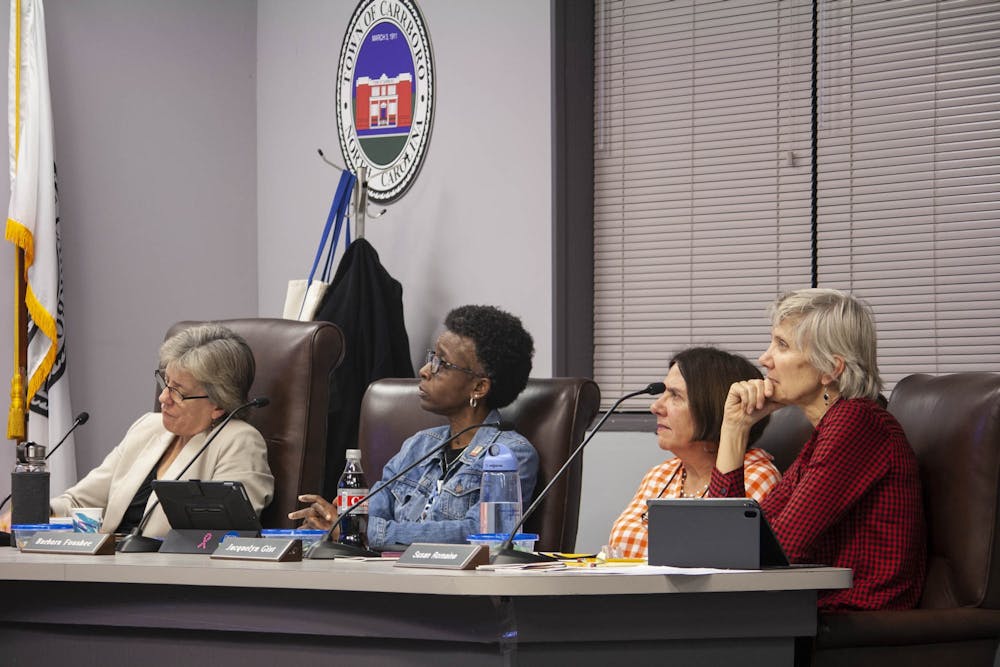In light of a recent lawsuit against UNC for its coal plant, both community members and town council members of Carrboro are adding their voices to the discussion.
During the Carrboro Town Council meeting on Tuesday night, council members and residents shared their opinions on the coal power plant. The town council had a resolution on the agenda to officially speak out against UNC and urge the University to close down the power plant by 2023.
While the council voted to pull the resolution until a later date in order to have more information, it still heard the comments from residents of Carrboro, who were both for and against Carrboro urging the University to stop its coal usage.
Jovita Lee, the North Carolina state campaigner for the Center for Biological Diversity, said she was in favor of the resolution because of the power plant's harmful effects on the environment and on the quality of life for citizens of Carrboro and Chapel Hill.
“The nitrous oxide and the sulfurous oxide and mercury have all led to a threat to Carrboro’s public health and to the climate as a whole," she said. “Both town residents and UNC students are all directly impacted by these pollutants, and they can lead to asthma, heart disease and premature death.”
She also said the effects of the power plant on residents of Carrboro is linked to racial inequities.
“This is also an environmental justice concern as historically Black communities, such as Pine Knolls and Northside, which are located in Chapel Hill, are impacted directly by the plant, per the results of an EPA’s environmental justice screen poll that was created to identify these injustices,” she said.
Lee said 10 years ago, former Chancellor Holden Thorpe said the plant would be shut down by 2020. However, in 2017, the administration went back on this decision and said they were working toward having a carbon neutral campus by the year 2050.
“We all know that that is an inadequate response to both the climate and public health threat that this plant poses," she said.



